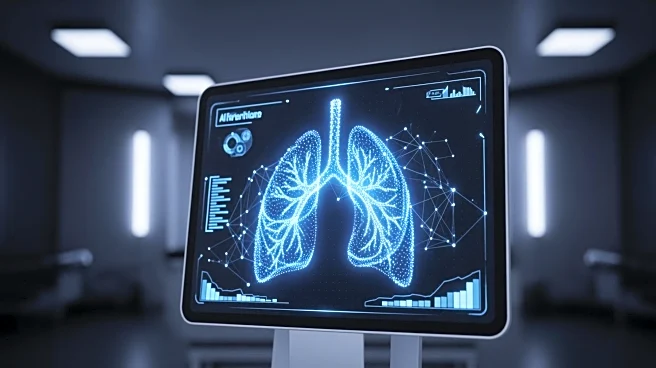What is the story about?
What's Happening?
The UK food and drink industry, a major manufacturing sector, is grappling with rising costs, labour shortages, and supply chain challenges. These pressures are prompting manufacturers to adopt technology and smarter processes to boost output, reduce waste, and streamline compliance. The industry generates £148 billion in turnover and employs nearly 500,000 people, supporting an additional four million jobs in the wider supply chain. Despite its significance, the sector has received only a quarter of the investment directed towards automotive and aerospace industries, despite offering almost double the return. Manufacturers are increasingly prioritizing automation and digital solutions to enhance productivity, although confidence remains low due to volatile global conditions and recent policy impacts.
Why It's Important?
The pressures facing the UK food and drink industry have significant implications for its competitiveness and sustainability. Rising operational costs, labour constraints, and fluctuating ingredient prices are affecting profitability and operational flexibility. Compliance with regulations like Natasha's Law and the upcoming Extended Producer Responsibility packaging levy further complicates production processes. These challenges necessitate innovation and investment in digital tools and automation to maintain efficiency and meet consumer demand. The industry's ability to adapt and transform under these pressures will determine its future growth and stability, impacting the broader economy and employment landscape.
What's Next?
Manufacturers are expected to continue investing in automation and digital solutions to address the challenges they face. The next wave of investment will likely focus on areas that offer the greatest impact, such as real-time Overall Equipment Effectiveness platforms and robotics to reduce manual labor. As manufacturers navigate these pressures, they may also explore new strategies for ingredient sourcing and production scheduling to mitigate volatility. The industry's transformation journey will involve assessing suitable solutions, preparing effectively, and embedding processes that turn innovation into lasting success.
Beyond the Headlines
The industry's transformation could lead to long-term shifts in production practices and supply chain management. Embracing digital tools and automation may redefine labor roles and require new skill sets, impacting workforce dynamics. Additionally, the focus on sustainability and waste reduction aligns with broader environmental goals, potentially influencing consumer perceptions and demand. As manufacturers adapt to these changes, they may also contribute to advancements in technology and process excellence, setting new standards for efficiency and innovation in the sector.















